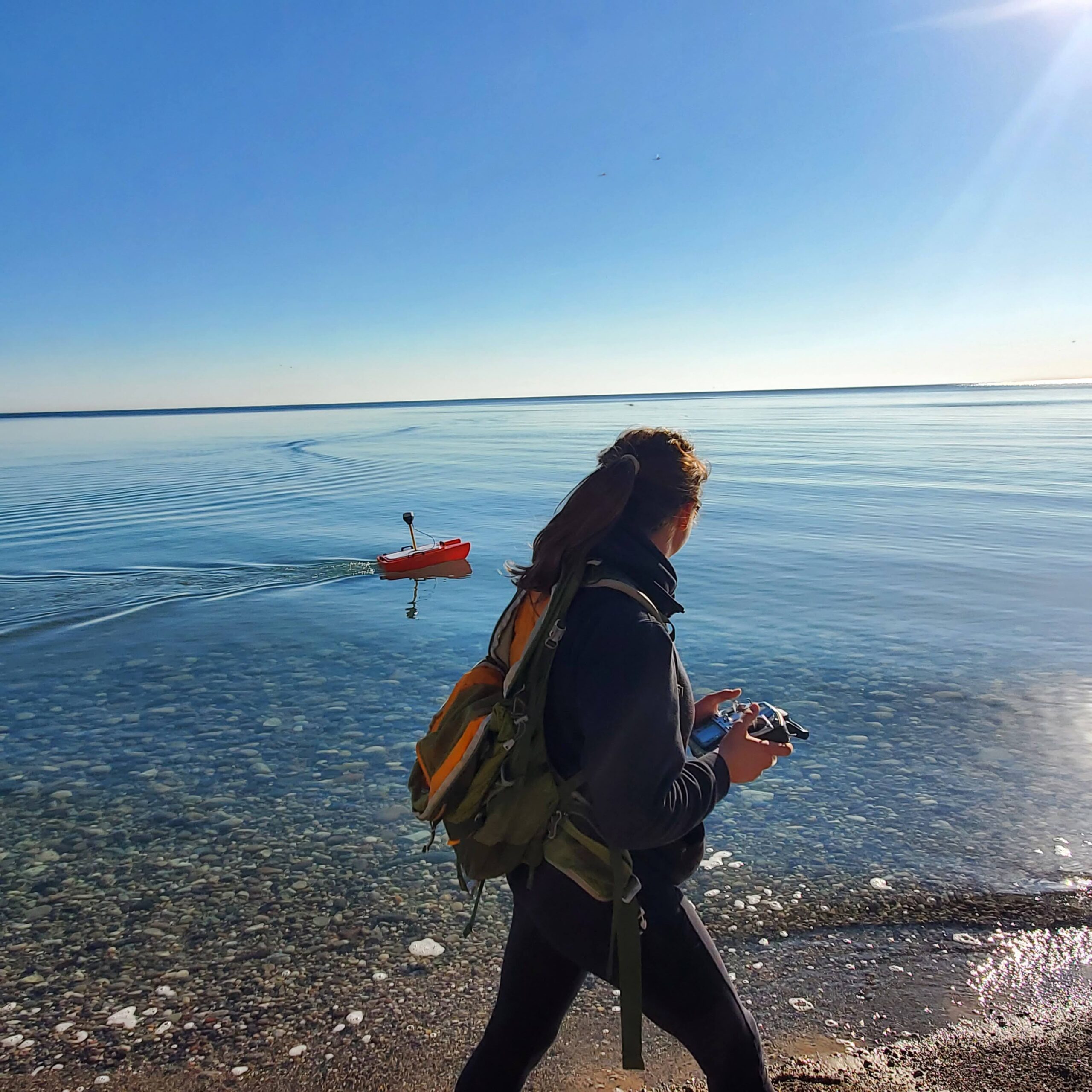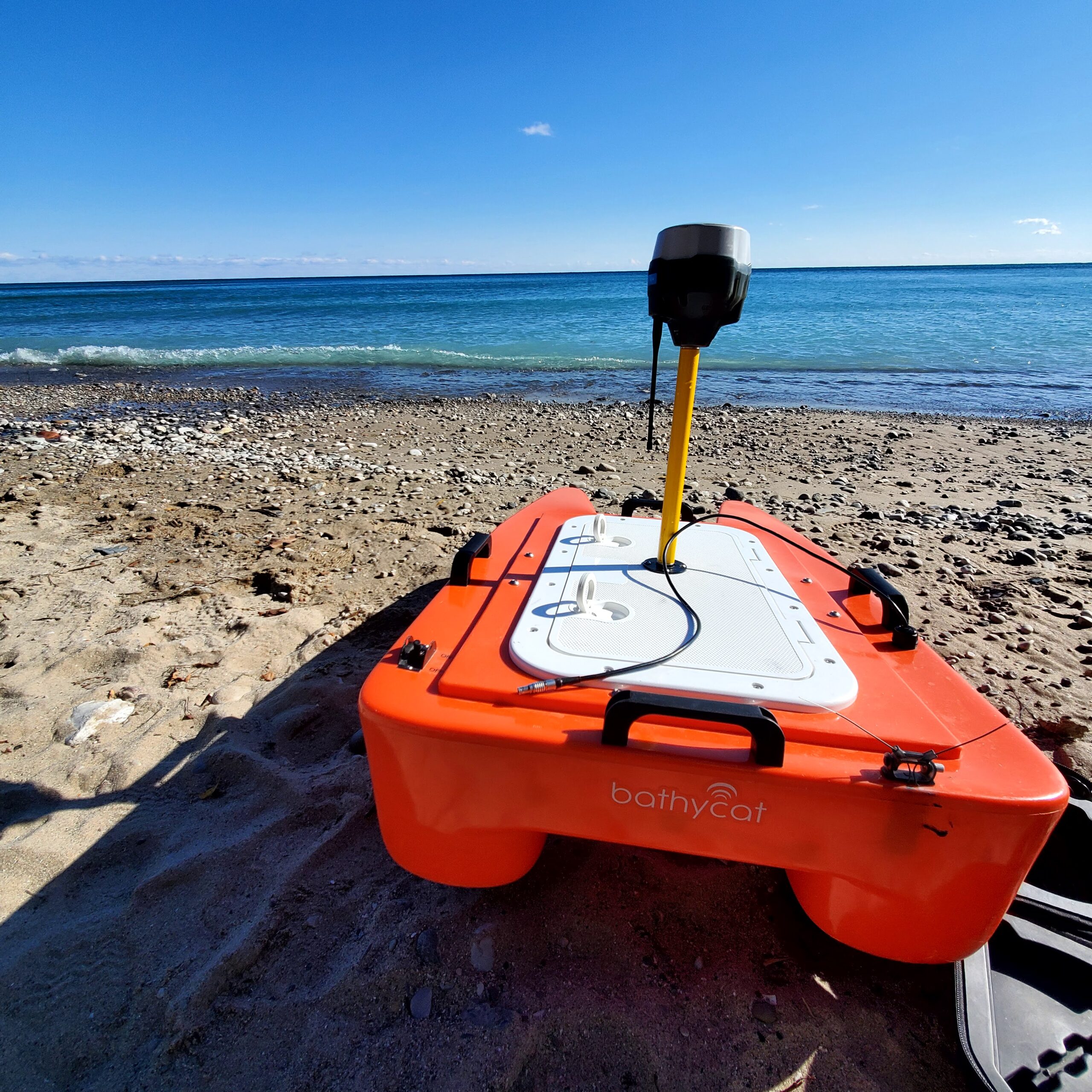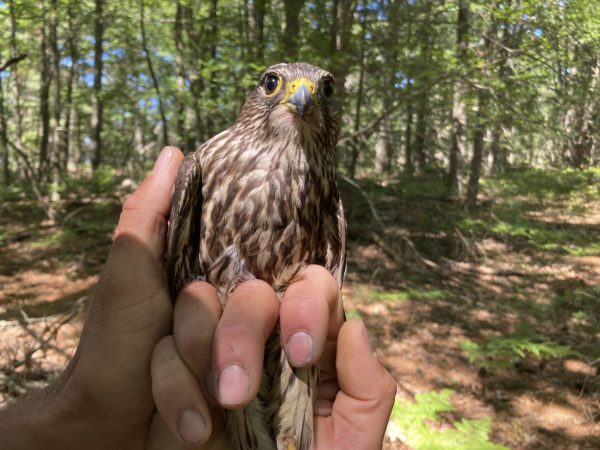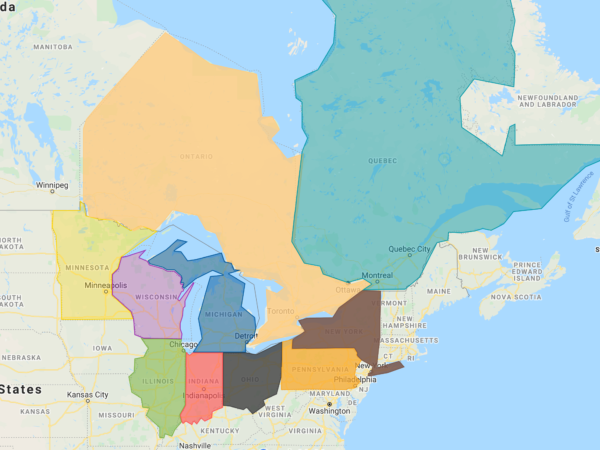
Chelsea Volpano’s coastal erosion study began drawing attention on social media last week, but not for the reasons you would expect.
The University of Wisconsin-Madison student was gathering the final data set for her Ph.D. on October 30 when her small boat stopped responding to the remote control. Standing on the shore of Lake Michigan near Grafton, Wisconsin, she could see it was heading steadily out into open water.
At first she was sure she was going to kayak out and get it. But the wind was blowing hard and once she got her kayak set up, she thought she should call her advisor to let him know.
“He said do NOT get in that kayak,” Volpano recalled. So she watched until her four-foot long, bright orange catamaran disappeared from sight.
“It was just this sort of slow but sad loss,” she said. “This was pretty much the last piece of data I needed.”

A close-up of the research boat. (Photo courtesy of Chelsea Volpano)
The boat – which is worth about $10,000 – was collecting sonar readings to map the lake bottom. The previous day’s storm had eroded sediment from the bluffs at Lion’s Den Gorge Nature Preserve and Volpano wanted lake bottom readings to compare to previous ones so she could figure out where the sediment had ended up.
While losing sediment from the bluffs could destabilize them, if it fortified the sandbars off the nearby beach, it would help reduce the effect of winter storms along that section of coast.
The issue has been top-of-mind over the past decade as rising lake levels have affected shoreline homes and infrastructure.
Volpano’s research is part of a larger ongoing project funded by Wisconsin Sea Grant about how sediments move around Lake Michigan. Researchers hope it will inform development decisions along the coast of all five Great Lakes.
The boat was heading east when it stopped responding to the remote, but it likely began drifting south with the wind after its batteries ran out.
Volpano hasn’t given up hope. In fact, she’s heartened by the overwhelming response to her Facebook post asking for people to keep an eye out. A local pilot has done a couple of flights over the area and the Coast Guard did a drift simulation based on currents.
“They figure it’s within three miles of where I lost sight of it,” she said.
That would put it somewhere off Lakefield Road in Grafton, Wisconsin, where she spent the weekend searching offshore with her drone.
“This is not the way I wanted to get attention for my science,” Volpano said, “but it’s a nice consolation prize that it’s got people thinking about the Great Lakes and how they’re doing.”
Catch more news at Great Lakes Now:
Science Says What? How 5th-graders counting plants can lead to positive change
Mapping the Great Lakes: Underwater discoveries await
Featured image: The student was gathering the final data set for her Ph.D. when her small research boat stopped responding to the remote control. (Photo courtesy of Chelsea Volpano)
1 Comment
-
Post it on the Nextdoor website plus Facebook and Twitter.
Good luck, hope it turns up.




